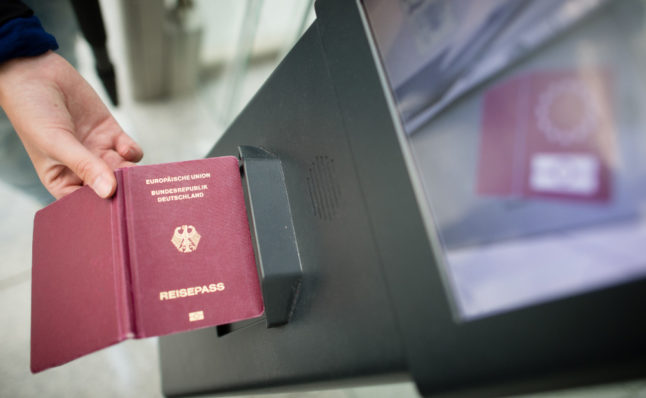Long airport queues often go hand-in-hand with summer plane travel, especially at Germany’s busiest Flughafen, Frankfurt International Airport.
But a newly expanded electronic border control check-in system is aiming to shorten waiting times for all German residents, regardless of whether or not they come from an EU country.
READ ALSO: ‘Horrible queues’: What Frankfurt airport is really like this summer
As of Monday, July 3rd, registered third-country nationals can now use the partially automated EasyPASS facilities for their entry and exit, provided they hold a German residence permit and are older than 12 years-old.
It’s possible to sign up for the system directly at Frankfurt’s airport.
Holders of a German long-stay visa in category D can also benefit from the automation, but only when leaving Germany. Furthermore, the passport currently in use must be registered with the Foreigners’ Office (Ausländerbehörde).
Until now, the use of automated border control was reserved for nationals of an EU member state, the European Economic Area or Switzerland, as well as – after prior registration – for holders of a passport from the US, the Hong Kong Special Administrative Region, or Korea and Taiwan.
This is still the case at the seven other German airports where the system is in place.
In all cases, a valid electronic passport is a mandatory requirement.
For more information on how to sign up for an EasyPASS, visit the official English-language website.
Updated on Friday, July 7th.



 Please whitelist us to continue reading.
Please whitelist us to continue reading.
This link is not to the English portal at all. Also, any news on those carrying a NATO SOFA status residence pass?